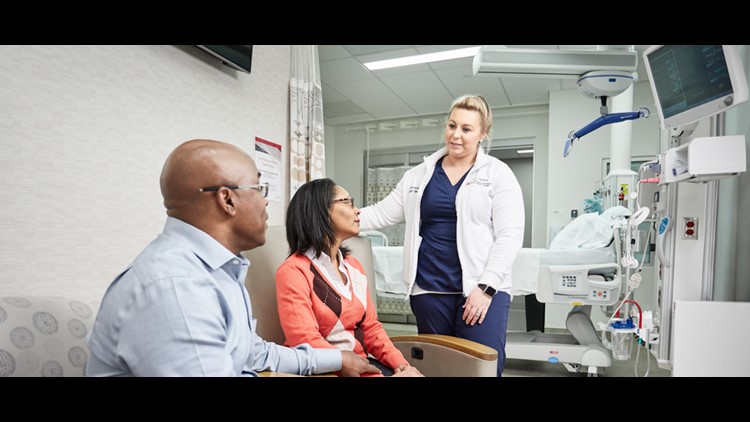Story by: OSUCCC – James
With more people being diagnosed with colon cancer at a younger age, it is especially important to understand personal disease risk and to take advantage of screening methods for catching the disease in its earliest—even precancerous—state.
In 2018, the American Cancer Society revised its colon cancer screening guidelines, recommending that all average-risk adults begin screening at age 45—five years sooner than previous recommendations. Screening is done with a high-sensitivity stool-based test or with colonoscopy.
Although these reliable screening tests exist, a surprising number of people still do not get tested.
“There is no question colon cancer screening saves lives through early detection, and we need to help people overcome barriers to getting these life-saving tests. Access to services, fear and misperceptions about the invasiveness of the tests can all present barriers to screening compliance,” says Peter Stanich, MD, a gastroenterologist with The Ohio State University Comprehensive Cancer Center – Arthur G. James Cancer Hospital and Richard J. Solove Research Institute (OSUCCC – James).
But is there a benefit to the stool-based test versus the traditional visual internal examination (colonoscopy)?
Stanich says any testing is better than no testing at all, but that screening colonoscopy, which involves an internal visual examination of the entire colon and rectum conducted while the patient is under sedation, is considered the gold standard. Screening colonoscopy is typically done every five to 10 years, based on age and personal risk.
He encourages all who are at the recommended screening age to talk to their doctor about the screening approach that is best for them. For people of average risk, stool-based testing often involves more frequent monitoring, every one to three years.
Genetic Risk for Colon Cancer
For some people, colon cancer is a family disease due to an inherited genetic mutation known as Lynch syndrome. While this mutation affects only about five percent of those with colon cancer, people with Lynch syndrome are at a dramatically increased lifetime risk for colorectal and other cancers compared with the general population.
“The especially frustrating part is that most people don’t know they have Lynch syndrome until they are diagnosed with advanced colon cancer at a young age, often before screening colonoscopy is even recommended. Many of these cancers could be prevented through earlier, more frequent screenings for high-risk individuals,” says Stanich. He encourages patients to have a discussion about family medical history and then take actions to understand personal risk.
The OSUCCC – James has conducted research on Lynch syndrome through the Ohio Colorectal Cancer Prevention Initiative (OCCPI), a statewide research study led by Heather Hampel, licensed genetic counselor, to screen newly diagnosed colorectal cancer patients and their biological relatives for Lynch syndrome. The study is funded by Pelotonia, a non-profit organization that brings people together to accelerate funding for cancer research. Over the past 10 years, the Pelotonia community has raised more than $184 million for cancer research initiatives at the OSUCCC – James, and has helped to invest in innovative research, the brightest minds and ideas, and the tools and technology needed to get us one step closer toward a cancer-free world.
Schedule a Colon Cancer Screening
The OSUCCC – James offers colon cancer screening appointments Monday-Friday at several locations across Columbus. Saturday appointments are also available once a month. For appointment information, call 800-293-5066 or visit cancer.osu.edu/coloncancer.



